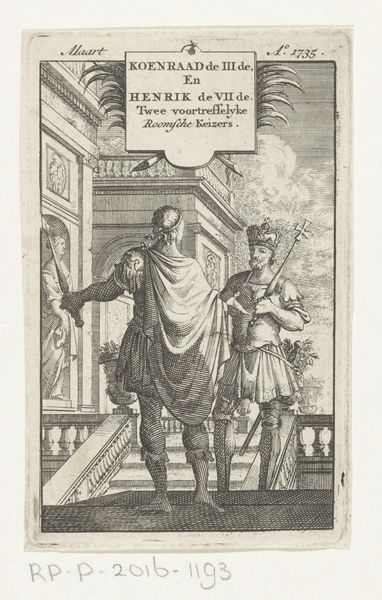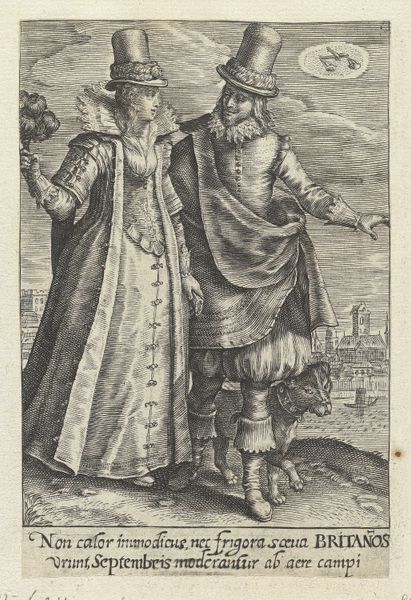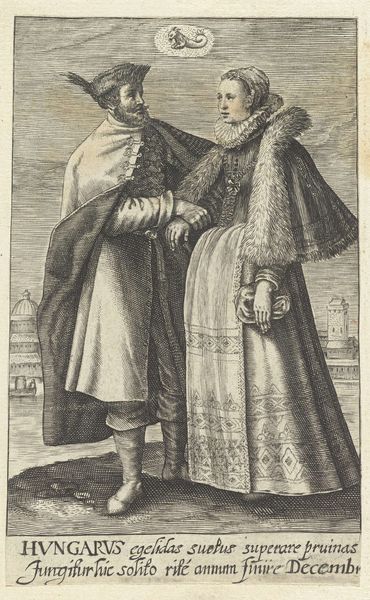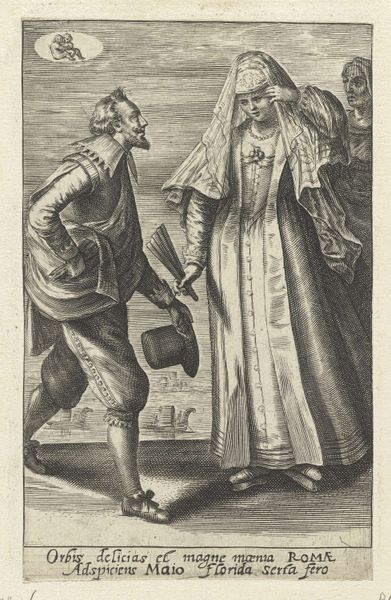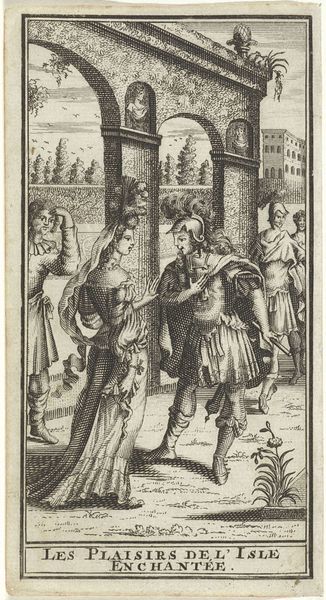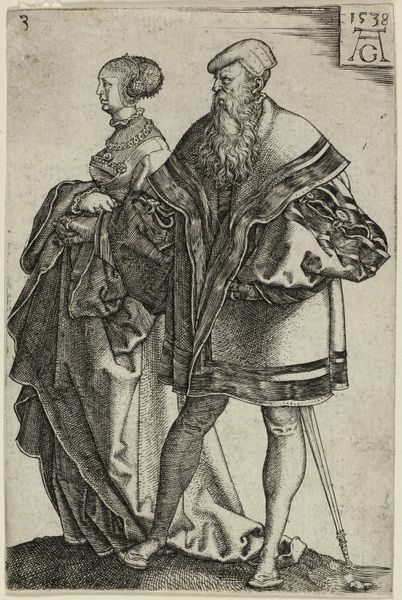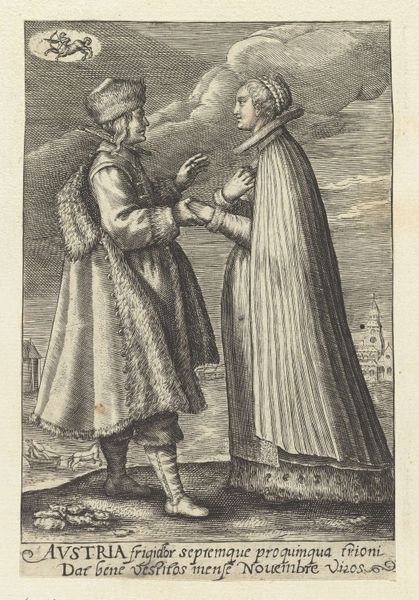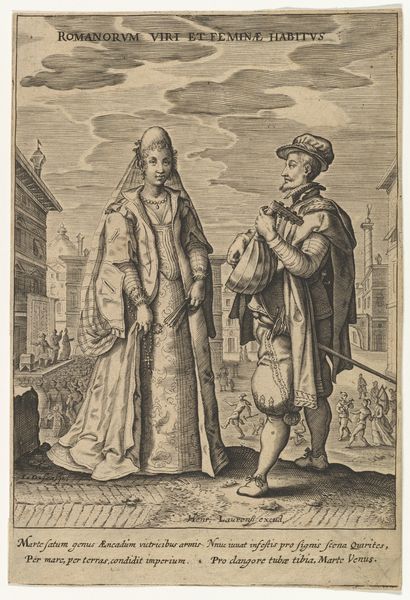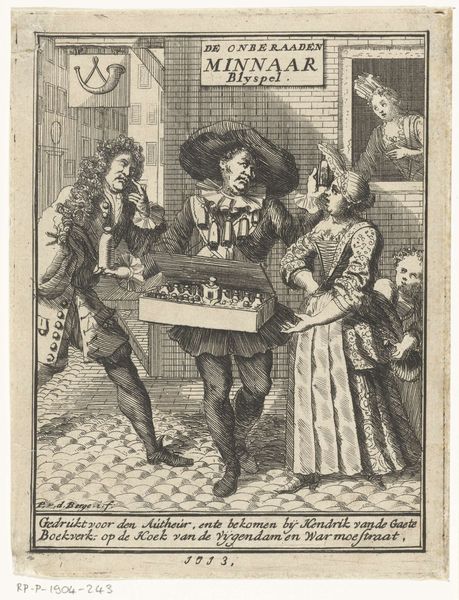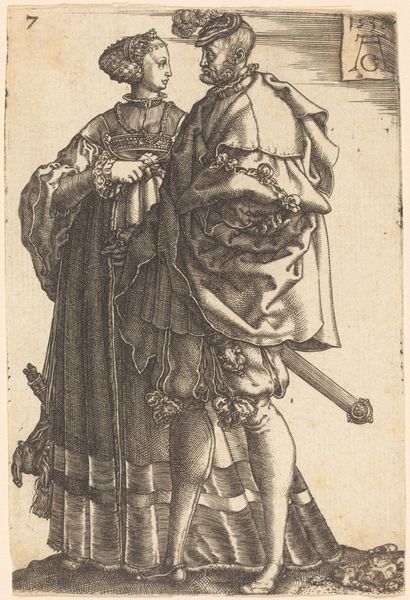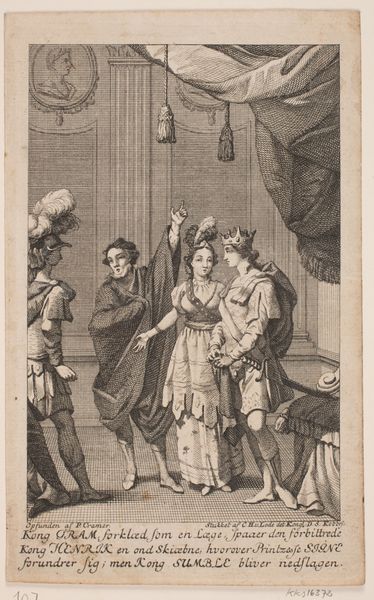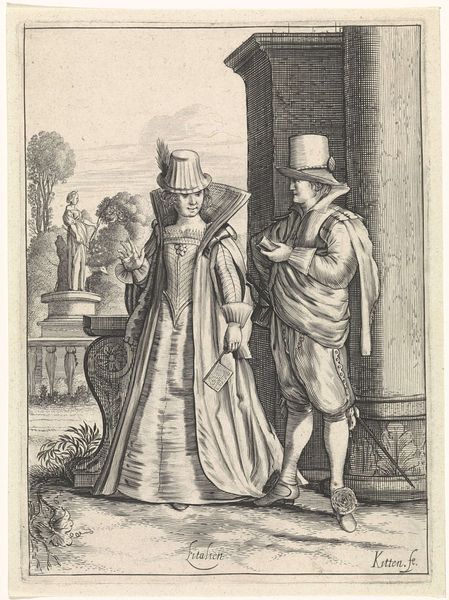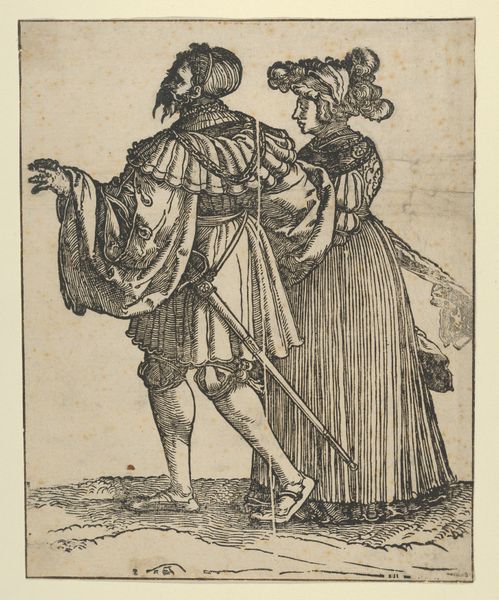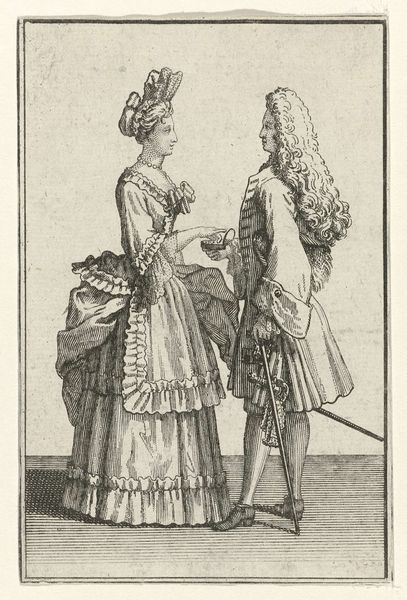
#
pencil drawn
#
aged paper
#
mechanical pen drawing
# print
#
pencil sketch
#
old engraving style
#
sketch book
#
caricature
#
personal sketchbook
#
pen-ink sketch
#
columned text
Dimensions: 250 mm (height) x 164 mm (width) (bladmaal)
Editor: So, here we have "A Pewterer and a Young Woman," an engraving probably made between 1650 and 1674 by an anonymous artist. I'm struck by the crispness of the lines and the almost photographic detail in the clothing. What do you see as the most important aspects of its visual structure? Curator: Immediately, the bilateral symmetry commands attention. The composition cleaves neatly: male and female figures balanced on either side of the vertical axis. Note how this mirroring isn't perfect; the implied movement of each figure disrupts any static reading. Consider, too, the textural variations—the dense hatching used to define volume against the comparative lightness used in areas such as the woman's dress. Editor: That's a great point about the asymmetry. The direction of the figures' gazes really animates the image. How does the relationship between the figures influence your reading of the work? Curator: It's a curious pairing. He gestures, she reciprocates. Do we see genuine exchange or mere posing? Observe their hands: the man holds his hat low; the woman holds her skirt high. They use their garments almost like symbolic cues in a constructed theatrical production. Do you find any spatial depth within the pictorial plane, or are they posed almost as a relief on the surface? Editor: I hadn’t considered it as theatrical, but I think I agree! Now that you mention it, they do look a bit like actors on a stage, with that building forming the backdrop. Thanks, I’m viewing it in a new light now. Curator: Indeed. It's the meticulous organization of visual elements that ultimately yields deeper meaning in art.
Comments
No comments
Be the first to comment and join the conversation on the ultimate creative platform.
